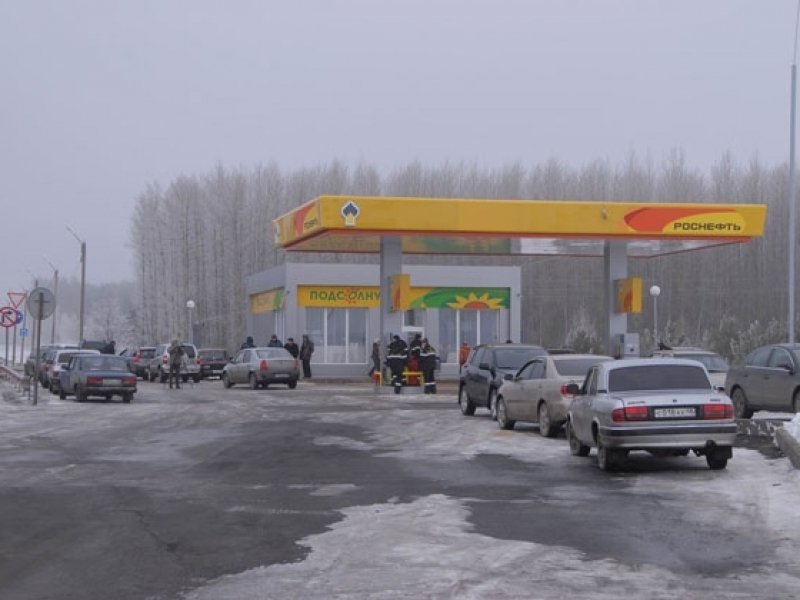Rosneft sold the assets of Ingushneft, leaving for itself only the business of selling oil products in the republic. Tsentrgeko Holding, to which it was sold a 51% stake, has promised to continue its oil production in Ingushetia. The sale of Ingushneft could lead to large-scale job cuts at the company, said Zakri Mamilov, a member of the People’s Assembly of Ingushetia. Together with the assets of Tsentrgeko Holding, oil field development licenses were sold, which opens up prospects for oil production in the region, according to a former employee of Ingushneft. Further resale of licenses threatens the republic with forfeiture of land, the source warned.
«Rosneft has sold its assets in Ingushetia in favor of Tsentrgeko Holding, according to a letter from Oleg Fursov, First Deputy Chairman of the Government of Ingushetia, to Zakri Mamilov, a member of the Ingushetian National Assembly, a copy of which is available to Fortanga.
In the document, Fursov said that 51% of Rosneft subsidiary RN Ingushneft, as well as the rest of the company’s property in Ingushetia were sold to Tsentrgeko Holding.
The holding was registered in June 2020 in Moscow with registered capital of 10 thousand rubles. The General Director is Dmitry Kamyshev. Judging by his track record, which is available on Centergeko’s website, Kamyshev has been in the geology business for a long time.
The document with reference to Igor Sechin, the chief executive officer of oil and gas company Rosneft PJSC, states that the company plans to stay in Ingushetia «as part of the retail business and will pave the way for the supply of the republic’s consumers with the main types of oil products». At the same time, the project on expanding the use of NGV fuel was named as one of the important areas of work.
Experts assessed the consequences of the sale of Ingushneft
«Rosneft has left oil production in Ingushetia and has remained only as a «petrol station», and this raises certain concerns, MP Zakri Mamilov told Fortanga.
«There are fears that this will lead to the reduction of workers. Today, Ingushneft employs about 850 employees; it is possible that after the reduction half of them will be left,» suggested MP Zakri Mamilov.
At the same time, he noted that today the Ingush oil production is in decline.
The sale of Rosneft’s 51% stake to Tsentrgeko Holding will take place in the next few days; shortly before that, a representative of the holding had a meeting with Mahmud-Ali Kalimatov, head of the Ingush government, Muslim Tatriev, general director of Ingushetia, said.
He said that the head of the republic in a conversation with a representative of the holding called the preservation of jobs in the company an important condition for the work of the company in the region. For his part, a representative of the holding assured that Ingushneft’s new management sets an important goal for the company’s development, in particular, the search for new hydrocarbon fields, Tatriev told Fortanga.
The General Director of Ingushneft explained that the Government of Ingushetia owns a 49% stake in Ingushneft, so the fate of the company is very important to the government of the republic. According to Tatriev, next week the delegation of Centergeko Holding is expected to arrive in Ingushetia. Within the framework of the visit the delegation is to meet the President of Ingushetia.
Tatriev also suggested that the reason for Rosneft’s withdrawal from Ingushetia was that Ingushneft was no longer important to the parent company due to low profitability.
Source: The sale of oil company assets threatened the territorial integrity of Ingushetia
«Ingushneft has accumulated debts amounting to about 2.6 billion rubles since 2011, a source familiar with the situation told Fortanga. According to him, at different times the company management took loans which were mainly spent on repair and reconstruction of the company buildings. In particular, about 300 million rubles were spent on the construction of the fence and almost nothing was invested in the production in order to pull the company out of the crisis, he pointed out.
«There was an impression that all this was being done deliberately — Ingushneft was driven into debt so that it would become an unprofitable company which could then be bought out,» suggested the source.
He also stressed that this debt had already been accumulated after the sale of Ingushneftegazprom, «which had a debt of over 1 billion rubles. «But Rosneft did not take these debts, the Ingushneft enterprise was created from scratch,» the source noted.
OAO RN Ingushneft acquired the property of bankrupt OAO Ingushneftegazprom for 452.5 million rubles, the National Association of Oil and Gas Service reported on October 5, 2016 with reference to the materials of the unified federal register of information on bankruptcy. Bankruptcy proceedings at Ingushneftegazprom were introduced in September 2011, at which time the company’s accounts payable exceeded 1.5 billion rubles. The procedure has been extended several times since, most recently until February 1, 2017.
The source believes that Ingushneft’s production could be pulled out of the crisis if the company were optimized, cut down, and got rid of ballast — machinery that is no longer in use. The company’s shares could have been handed over to the authorities of the republic if they had expressed a desire to take them, he is sure.
«Not only the wells were sold, but also all the property, including a huge number of buildings in Malobek. The territories around each well were also transferred […] huge territories were taken away by [ Centrgeko Holding],» the source pointed out.
He believes that the Ingush authorities approved the deal to Rosneft’s management without even trying to save the company. In addition, along with the assets, oil production and development licenses were sold. «Three licenses have been sold. Two of them have already been fully transferred into [the holding’s] possession — Musakayevskaya and Razdolyevskaya. There are confirmed large oil reserves in Musakaevskoye field. The Sernovodskoye field is still being transferred. There was drilling there, which also showed large oil reserves,» the source said.
In his opinion, the republic’s authorities should stop transactions related to the transfer of licenses, because together with them Ingushetia risks losing some of its territories in the future. «It is not known where these licenses will go afterwards. If our neighbors buy them, this will automatically be followed by transfer of territories,» he is sure.
At the same time, the source noted that together with Ingushneft, Rosneft sold Stavropolneftegaz, Dagneft and Dagneftegaz to Tsentrgeko Holding.
A former employee of Ingushneft confirmed to Fortanga on condition of anonymity that as a result of the deal Centrgeko Holding will receive three oil production licenses: for the existing oil production well Sernovodskaya and for two promising wells — Musakaevskaya and Razdolyevskaya. The Musakaevskoye field, located near North Ossetia, according to him, was explored during the Soviet period and has a prospect of profitability. «But it was abandoned then, because there were more important production areas. The Razdolya well, on the other hand, requires further geological study to assess its prospectivity,» the employee shared.
He noted that for oil production prospects in the region it is important that the potential of the well justifies the cost of drilling.
Rosneft’s decision to sell assets in several regions, including southern Russia, became known in December 2020. The company decided to optimize its asset portfolio and sell part of its projects to Russian oil and refining companies to improve its quality, TASS reported on December 2, 2020, citing a company representative.
Rosneft plans to divest unprofitable assets in order to improve the quality of its project portfolio and provide capital for Vostok Oil, Interfax quoted the brokerage company BKS as saying on December 2, 2020. The NK management estimates prices to be relatively low, perhaps $1-2/bbl. reserves, but these are low-performing fields, some of which have not generated significant positive cash flow for many years.


